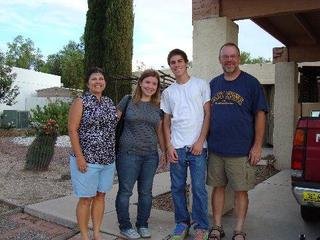The history of the life of Edgar Degas can be found here.
The worship bulletin for Sunday is here.
A video of Degas' work
Notice this painting by Degas. It is called Ballerina with Woman with
Umbrella on a Bench. It is one of many paintings of dancers that Degas made. Degas painted his dancers as much at rehearsal and class as he did in performance. Was he celebrating all of life? Was he valuing the process as much as the product? Was he demonstrating that the beauty of the performance could only come about as a result of great effort? And what do we make of the woman next to her? Is this her teacher? Is it her mother? Is it her governess sent to escort her to rehearsal? Does her somber clothing reveal what the brightly-clothed ballerina really thought of dance? That is was a drudgery? Is the painting showing us that the mundane in necessary to produce the beautiful?
In one of his songs, Bob Dylan said, “Behind every beautiful thing, there’s been some kind of pain.” As we see the ballerina rub her ankle, we see the truth of that statement.
There is meaning and purpose and value in all of life, even your suffering. I do not believe that everything happens for a reason, but I do believe that every experience has value. I believe that every experience impacts our lives and shapes who we are. Just as class a practice were an essential part of the lives of Degas’ dancers, suffering and trials will be inevitable parts of our lives. But we believe that God will REDEEM our suffering. Suffering is not good, but something good can come from it.
It seems that our life is like the life of the dancers. It made up more of the mundane and painful parts than the beautiful parts. What do we do? How can we keep our heads up when all we see coming down the road at us is more of the same? I think in Romans 8 Paul gives us 4 handles to help us keep a grip when life is hard. Paul said in Romans 8.18, “I consider that the sufferings of this present time are not worth comparing to the glory about to be revealed in us.” This verse reminds me of the second painting [Degas Ballerina]. Doesn’t that sound like the words of a dance instructor to her charges? I know rehearsal is hard. I know you’re sore. I know your feet hurt. But when the curtain opens and the lights come up, you will forget all about this. What are these 4 handles that allow us to get a grip on life? How can we come to focus on the glory and beauty of life over the suffering?
8.18-25 HOPE gets us through the hard parts of life. What is hope? Hope is the belief or maybe even the suspicion that something better is ahead of us. God’s redeeming of our souls in mercy leads us to hope that God will redeem the rest of our lives.
8.26-27 The SPIRIT INTERPRETS OUR PRAYERS to God. Life can be so hard and so mind-numbing at times that we don’t even know what to pray for, how to pray, or if we have the desire or strength to pray. The Spirit interprets are prayers to God in accordance to his purpose for us.
8.28-30 GOD’S PURPOSE WILL BE WORKED IN US through suffering. God will use the experiences of our lives to form our character into a Christ-like character.
8.31-39 No matter how bad things get, GOD ALWAYS LOVES US AND IS WITH US. I remember when I was little and I fell and hurt myself badly. I remember sitting on the front porch of my house in my father’s lap. My dad being there didn’t make it hurt less or heal faster, but it was extremely comforting to me just to be with him. So it is with God. God will ALWAYS be with us during our hard times. Is God even closer during our painful times? Psalm 34.18 tells us that God is near to the brokenhearted.
What’s hurting right now in your life? Where is the pain, the frustration? You can know that just as sure as God forgives your sins, he is going to redeem the rest of you, too. You may be confused, hurt. God knows just what you need, you don’t have to come up with some eloquent prayer. You don’t have to figure it out. Pain and suffering are not pleasant, but God can work in us through them. Are you dealing with hard stuff right now? Is your life a disappointment to you? Are you feeling hurt? God is near.
